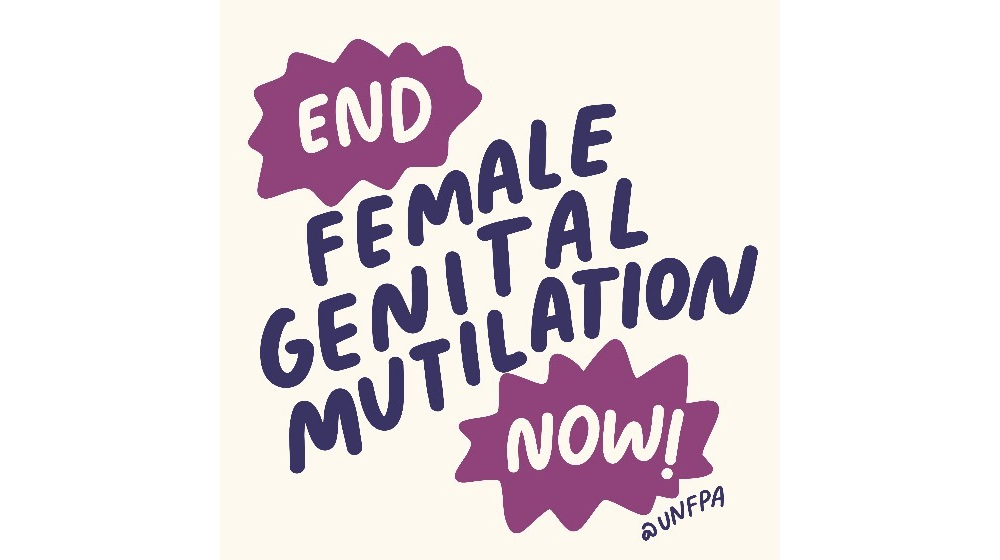A crisis within a crisis: Increased investment critical to end female genital mutilation as COVID-19 rages on
Joint Statement by UNFPA Executive Director Dr. Natalia Kanem and UNICEF Executive Director Catherine Russell on the International Day of Zero Tolerance for Female Genital Mutilation
NEW YORK, 6 February 2022 – “Multiple overlapping crises are putting millions of girls at increased risk of female genital mutilation.
“Countries already grappling with rising poverty, inequality and conflict are seeing the COVID-19 pandemic further threaten years of progress to end the practice, creating a crisis within a crisis for the world’s most vulnerable and marginalized girls.
“Even before COVID-19, 68 million girls were estimated to be at risk of female genital mutilation between 2015 and 2030. As the pandemic continues to shutter schools and disrupt programmes that help protect girls from this harmful practice, an additional 2 million additional cases of female genital mutilation may occur over the next decade.
“Rapid population growth in some countries is expected to further increase the number of girls at risk, adding urgency to the global effort to eliminate the practice by 2030 as set out in the Sustainable Development Goals.
“Female genital mutilation harms girls' bodies, lives and futures. It is also a violation of their human rights. Only united, concerted and well-funded action can end the practice everywhere.
“As the global community adopts programmes to reach girls and women impacted by the pandemic, there is an urgent need to accelerate investment to end female genital mutilation. Some $2.4 billion are needed to eliminate this practice in 31 high-priority countries. Specifically:
- Investment in the empowerment of girls and women, and in adequate services and response for those affected and at risk of female genital mutilation.
- Investment in building partnerships and mobilizing allies – including men and boys, women’s groups, community leaders and even former practitioners of female genital mutilation – to help eliminate the practice.
- Investment in developing and enforcing national-level laws and strengthening institutions.
“So far, progress has been clear and measurable. Today, girls are one third less likely to be subjected to female genital mutilation than 30 years ago, and in the last two decades, the proportion of girls and women in high-prevalence countries who oppose the practice has doubled.
“Those gains now face an unprecedented challenge. Global efforts must keep the momentum moving forward and build on years of progress to end this harmful practice completely.”
###
Notes to Editors
The UNFPA–UNICEF Joint Programme on the Elimination of Female Genital Mutilation works to tackle female genital mutilation through interventions in 17 countries where the practice is prevalent. The programme creates opportunities for girls and women to realize their rights in health, education, income and equality to help end the power imbalances that underpin this harmful practice.
For further information, please contact:
Helen Wylie, UNICEF New York, Tel: +1 917 244 2215, hwylie@unicef.org
Zina Alam, UNFPA New York, +1 929 378 9431, zialam@unfpa.org
About UNICEF
UNICEF works in some of the world’s toughest places, to reach the world’s most disadvantaged children. Across more than 190 countries and territories, we work for every child, everywhere, to build a better world for everyone.
For more information about UNICEF and its work for children visit www.unicef.org
Follow UNICEF on Twitter, Facebook, Instagram and YouTube
About UNFPA
UNFPA is the United Nations sexual and reproductive health agency. UNFPA's mission is to deliver a world where every pregnancy is wanted, every childbirth is safe and every young person's potential is fulfilled. UNFPA calls for the realization of reproductive rights for all and supports access to a wide range of sexual and reproductive health services.
For more information about UNFPA and its work visit: www.unfpa.org
Follow UNFPA on Twitter, Facebook, Instagram and YouTube



